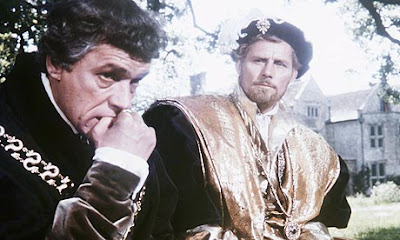When I first viewed Jesus Christ, Superstar I was a happy guy. I found it a curious oddity, and left it at that.
I am the youngest of five children. As I aged, I witnessed the decisions my older siblings were making. I had the privilege of seeing them live their lives first. I also took note of a predominant pattern. One by one, my siblings finished high school, went to some form of undergraduate study, fell in love, and married shortly after graduation. This was a life formula that my four siblings all embraced, the same system my parents enlisted in years prior that made my existence possible. I was smart, I had friends, I had passion, I had religion; there was no reason why the pattern would stop with me.
When I first watched Jesus Christ Superstar, I was sure my life was following the formula. I was happy to follow this paradigm.
When I started to watch Jesus Christ, Superstar on a daily basis three months later, my paradigm was in shambles. In my heart I was ignoring a great tide of resentment mounting against my family and anyone else who got to live the life that I now saw as taken from me. Everyone else was getting what I rightly deserved. I was last in the line of the Stack lifestyle, yet I was being shunned by God, I reckoned.
Okay, bad stuff happens -- I've understood this from an early age. What I didn't understand was how God, my Father, could let me wallow in my self-pity and pain when I called upon his name. I prayed for many things, but most of all, that in my suffering He would make Himself known.
When God didn't respond to my prayers with a divine intervention,
my pain became despair.
When Jesus didn't sit next to me on a bench and explain everything,
loneliness became my best friend.
When the Holy Spirit didn't indwell me with a sense of comfort,
I made doubt my ally.
Depictions of Jesus of Nazareth, the Savior from the line of David, who was born of the Virgin Mary in Bethlehem, tend to follow the same pattern. As successful as The Jesus Film (and God bless that project, as it has been a great vehicle to bring droves of needy people to know their Savior) has been for sharing the Gospel, it has epitomized in my mind a traditionally stoic depiction of Jesus. He seems humorless and otherworldly. He somehow doesn't seem invested in this world.
Jesus Christ, Superstar was made by folks who appear to not believe that their subject actually overcame death in the form of resurrection. Yet as I lay wallowing in my own filth and depression, their depiction of my Redeemer was saving me from a complete withdrawal from the faith.
As I was depressed, my ever wrenching question became, "God, do you love me at all?" It seemed He either didn't care for His suffering son, or He didn't exist.
Jesus, the one and only Superstar, screams with such raw emotion that no one can doubt His passion. His stratospheric bellows of song ripped through my body like a hurricane. This was the God I wanted to attach myself to, this was the man I wanted to die serving. Why God chooses not to heal some wounds will be a mystery until the next life, but to be given such a succulent, tangible expression of his love and passion was enough to keep my faith above water. Amidst that devastating storm in my life, Jesus Christ, my passionate, emotional, advocating Superstar, was my snorkel. He remains as such to this day.
How great it is to be loved so much, by so mighty a God. This is the only pattern I need follow.















































